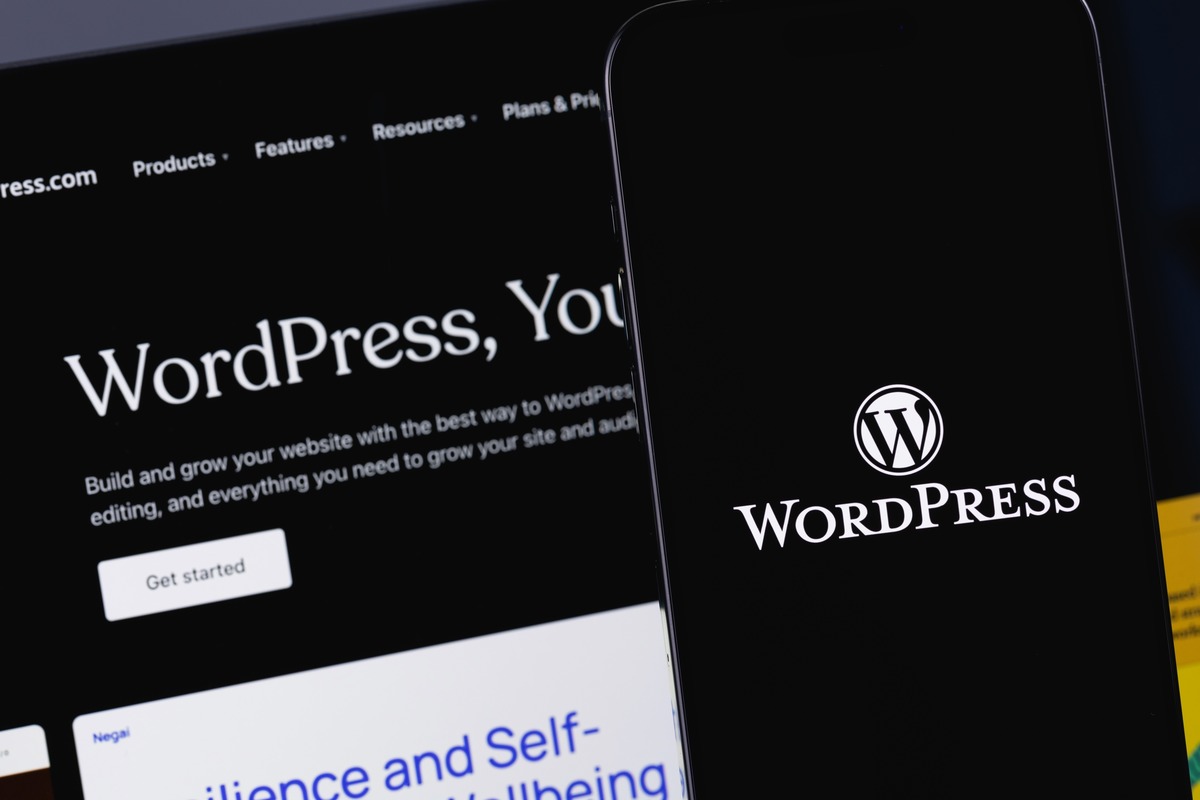
WordPress is the most popular content management system (CMS) globally, currently powering 40% of all websites. So if you’re following the current drama between WordPress founder, Matt Mullenweg, and managed WordPress hosting provider WP Engine, you might be concerned about what will happen if you use WordPress or are thinking about it. If you haven’t been following along, we’ll get you up to speed and explain why their beef might affect a good chunk of the World Wide Web.
How does WordPress work?
WordPress.org is an open-source CMS that enables users to create and manage websites. It’s attractive to beginners and experienced web developers because it has high customizability and doesn’t require coding knowledge. WordPress supports most website types, from personal blogs to complex e-commerce stores.
Though WordPress is open source and, therefore, technically unowned, the nonprofit WordPress Foundation holds the trademark. The first version of WordPress was launched in 2003 by Matt Mullenweg and Mike Little. Mullenweg later founded Automattic, the company that owns WordPress.com, the for-profit wing of WordPress.
Open-source software is free to use and anyone can modify or distribute it. As WordPress grew in popularity, hosting companies began offering managed WordPress hosting, which took care of technical needs like backups, security, speed optimization and software updates.
WP Engine, a prominent managed WordPress hosting provider, is not directly affiliated with WordPress, although the “WP” in its name may suggest otherwise. WP Engine uses WordPress’s open-source code, as many hosting companies do, to power its services. (WordPress.com also offers hosting.)
Why are WP Engine and WordPress at odds?
WordPress wants companies that profit from its ecosystem to contribute to its development. On Sept. 20, Mullenweg criticized WP Engine (which bills itself as the No.1 provider for the most-visited WordPress sites on the web) during a presentation at WordCamp US 2024, the biggest annual gathering of WordPress users. Mullenweg alleged that Silverlake, the private equity firm that owns WP Engine, contributed only 47 hours per week to WordPress, compared to Automattic’s 3,786. The next day, in a blog post, Mullenweg lobbed additional jabs at WP Engine.
In response, WP Engine issued a cease and desist letter to Automattic, which replied with its own cease and desist letter on Sept. 23. Automattic claimed WP Engine was violating intellectual property by using the WordPress and WooCommerce (an open source e-commerce plugin for WordPress) trademarks in its marketing.
On Oct. 12, WordPress forked (created an independent copy of) a WP Engine plugin called Advanced Custom Fields to create a new plugin called Secure Custom Fields, claiming they removed commercial upsells and resolved a security issue. WordPress also banned WP Engine from using WordPress.org’s resources.
WP Engine filed a motion for a preliminary injunction against Automattic and Mullenweg, arguing that the WordPress community would suffer irreparable harm from Mullenweg’s actions. This was after WP Engine filed a lawsuit accusing them of extortion and abuse of power. Automattic and Mullenberg asked the court to dismiss the lawsuit, claiming that WP Engine was still using the WordPress trademark “in unauthorized ways.”
Legal considerations
Nafsika Karavida, an intellectual property lawyer at Reavis Page Jump LLP, believes WordPress would face difficulties if it pursued legal action against WP Engine for trademark violations.
“WP Engine has been using it for a long time,” says Karavida. “They’ve recently changed and modified their use a little bit, which is interesting.”
For instance, WP Engine changed some of the text on certain parts of their website, seemingly attempting to reduce any implied affiliation with WordPress.
“And they have probably done that after they received legal advice from a trademark attorney… The statute of limitations in California is four years for trademark infringement, and [WP Engine’s] use from the beginning has gone back to 2010 if you read the complaint,” says Karavida.
Also, the fact that WordPress has allowed other companies to use its trademark complicates its legal position. There are multiple managed hosting companies that offer “WordPress hosting,” including GoDaddy, Cloudways and A2 Hosting.
What to do if you use WordPress
If you have a website, you might be wondering about potential business implications, even if you aren’t a WP Engine customer.
Ernie Smith is a freelance journalist and editor of the long-running newsletter Tedium, which offers “strange and unusual descriptions of common things, explained in extreme depth,” according to its website. He advises businesses to make decisions based on their involvement in the WordPress ecosystem.
“If you have a website with 10,000 posts, and you’ve been committed to the WordPress ecosystem for a decade, it’s going to be a much different conversation than if [you’re] thinking about a content strategy like WordPress,” Smith says. “If you’re in the former, your best option is to stay the course while keeping abreast of the current days. In the case of the latter, look at other options.”
There are certainly alternatives to WordPress. If you like being able to drag and drop, SquareSpace’s simple user interface has become a choice option for business owners in a pinch.
Smith notes that the right CMS often depends on a user’s web development skills.
“Ghost comes to mind. For my personal website, I use Craft CMS—it’s also plugin based,” says Smith. “It’s built less for putting in your own things and more with the idea that you’re going to build a design from the ground up. But it’s pretty solid. It’s got a good community.”
While WordPress remains a dominant force in content management, this recent dispute with WP Engine could bring changes to the ecosystem. But if you’ve committed a lot of time to WordPress, don’t bail yet! Just stay informed and remain adaptable.
Photo by Primakov/Shutterstock




